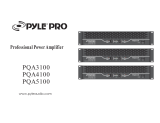
INTRODUCTION
XEROX DOCUPRINT 96/DOCUPRINT 96MX LPS MESSAGE GUIDE xi
• An order card for the Customer Documentation Catalog, which
describes other available Xerox documentation
• A Reader Comment Form. Please take a few minutes to write
your comments about the message guide, and any suggestions
you may have for improving it, on the Reader Comment Form
• Chapters 1 through 14 are arranged alphabetically according to
the coded messages as they appear on the system controller
(e.g., CP, DS, and FD) or by the type of uncoded messages
(i.e., scale, summary sheet, and system verification error).
How the message guide is organized
This guide is organized in the following way.
• Tabs separate the chapters for easy reference and are printed
with the code you will see on the system display. For example,
FDL messages appear as FDxxxx on your system display, thus
the tab for the FDL chapter is “FD (forms compilation).”
• Coded messages are listed alphanumerically, with the two-
letter code followed by the four-digit numeric code, such as:
OS1000, PD8510, and HP2430. The numeric codes range from
0 to 9. Generally, the higher the numeric code, the more serious
the problem or condition being reported.
• Scale and system verification error messages are not
numbered and, therefore, are listed in alphabetical order by the
first word in the message.
• The message chapters consist of a lefthand “Message” column
and a righthand “Meaning/action” column. The message
column contains each entry‘s message code followed by the
message that appears on the system controller display, for
example:
OS2002 CHECK PAPER SUPPLY IN TRAY 1.
The Meaning/action column contains the meaning of the
message and/or what caused it to be displayed. For example:
Fewer than 25 sheets of paper remain in (feeder) tray 1.
This column also lists the action(s) to take, if any, in response to
the message. For example:
1. Add paper to (feeder) tray 1.
2. Press the <CON> key to resume printing.





















